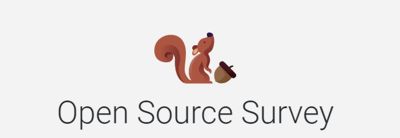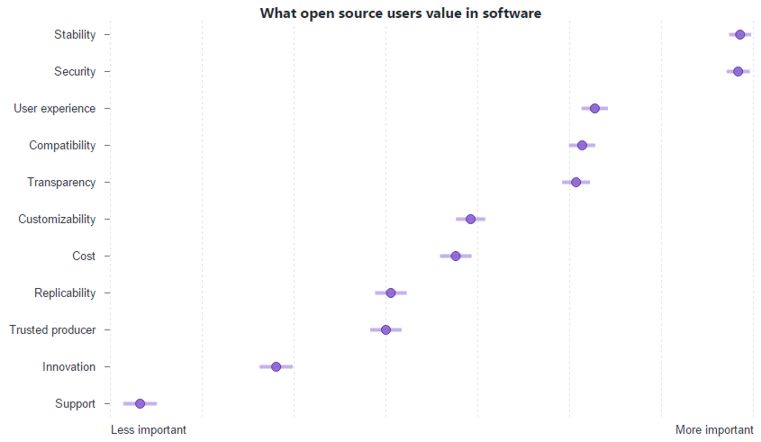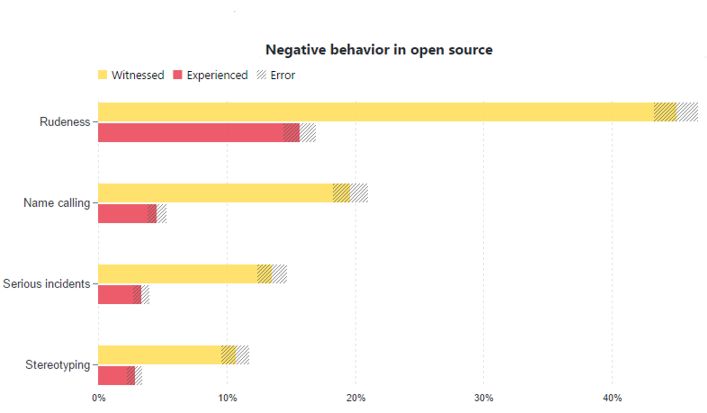| Open Source Valued Despite Poor Documentation and Bad Behavior |
| Written by Janet Swift | |||
| Thursday, 22 June 2017 | |||
|
Findings from an Open Source Survey designed by GitHub together with researchers from academia, industry, and the community, provide interesting insights about the attitudes, experiences, and backgrounds of those who use, build, and maintain open source software. The full results are available as an open data set available on GitHub.
The survey had over 50 questions and collected responses from 5,500 randomly sampled respondents sourced from over 3,800 open source repositories on GitHub.com, and over 500 responses from a non-random sample of communities that work on other platforms. The key insights identified by GitHub include:
With regard to the final point, 72% of respondents claimed they always seek out open source options when evaluating new tools. The main reason for this was security: 86% of those surveyed considered security extremely or very important in choosing software and 58% believed that open source software is usually better than proprietary software (58%) with respect to security.
While users also valued stability with 88% rating it extremely or very important, only 30% thought open source software more stable than proprietary options.. Similarly, while 75% of respondents value user experience, only 36% considered open source software superior in this respect.
(click in chart to enlarge)
The most prevalent problem identified in the survey was Incomplete or outdated documentation. This was observed by 93 percent of respondents, but on the other hand 60 percent of contributors say they rarely or never contribute to documentation.The finding that nearly a quarter of the open source community reads and writes English less than ‘very well' is a factor that both contributes to poor or lacking documentation and the need for it to be clearly expressed and comprehensive. Open source brings together people from all over the world, which can lead to conflicts. While serious incidents are rare, the public nature of open source makes Negative interactions highly visible. (click in chart to enlarge) While 18% of respondents have personally experienced a negative interaction with another user in open source, 50% have witnessed one between other people. By far, the most frequently encountered bad behavior is rudeness (45% witnessed, 16% experienced), followed by name calling (20% witnessed, 5% experienced) and stereotyping (11% witnessed, 3% experienced). More serious incidents, such as sexual advances, stalking, or doxxing are each encountered by less than 5% of respondents and experienced by less than 2% (but cumulatively witnessed by 14%, and experienced by 3%). With regard to representation, findings reported by GitHub included:
GitHub also reported that the majority of employed respondents use and contribute to open source at work:
There is plenty more to discover from this data, which is available to download and explore.
More InformationOpen Source Survey Download Data
Related ArticlesGitHub Octoverse Reveals The State Of Open Source Vision Mobile Developer Survey Extended Grimoire Lab-GitHub - Stats On Steroids
To be informed about new articles on I Programmer, sign up for our weekly newsletter, subscribe to the RSS feed and follow us on Twitter, Facebook or Linkedin.
Comments
or email your comment to: comments@i-programmer.info |
|||
| Last Updated ( Thursday, 22 June 2017 ) |







